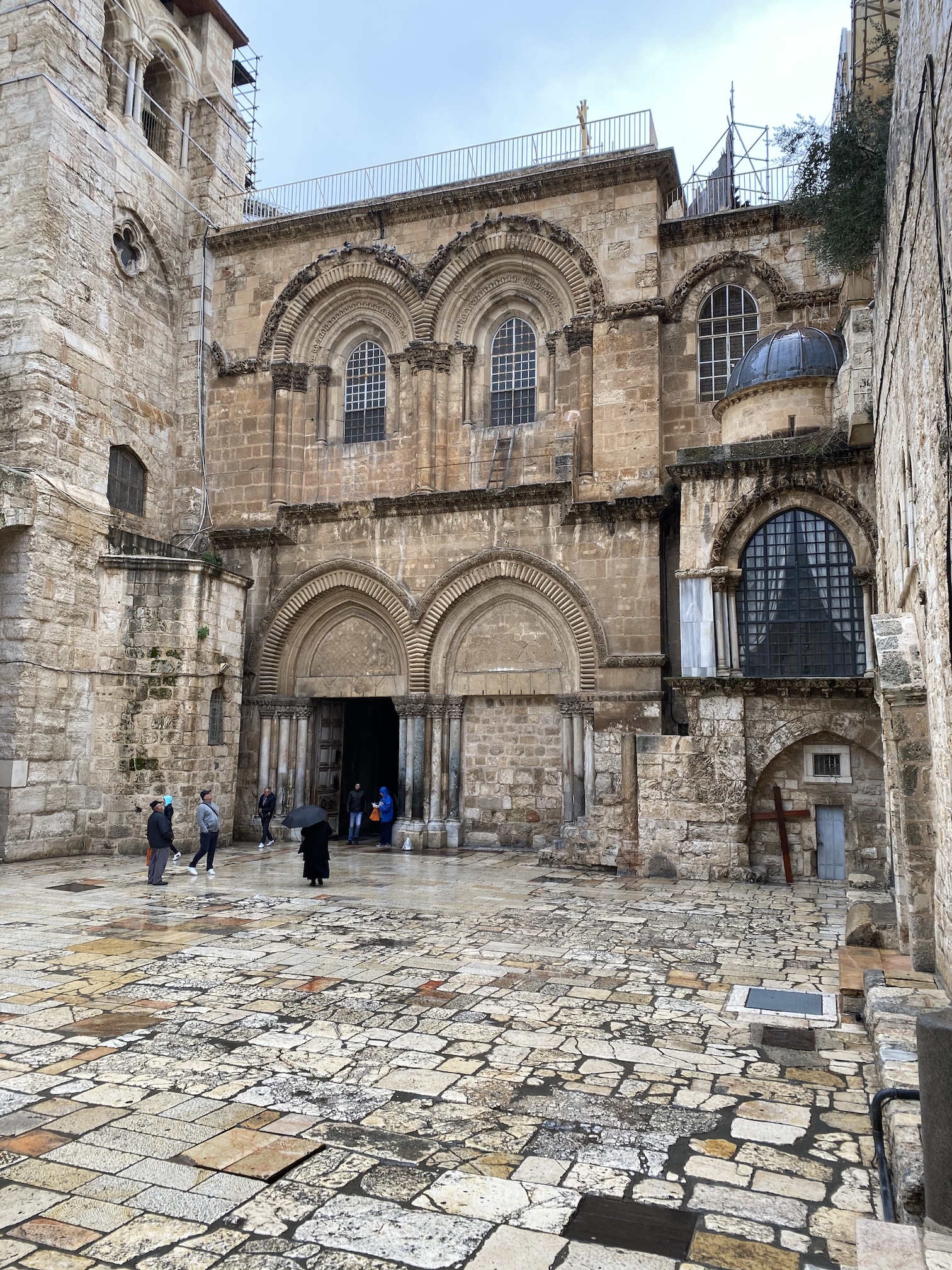Two others—criminals—were also led away to be executed with him. When they arrived at the place called The Skull, they crucified him there, along with the criminals, one on the right and one on the left. Then Jesus said, “Father, forgive them, because they do not know what they are doing.” And they divided his clothes and cast lots.
The people stood watching, and even the leaders were scoffing: “He saved others; let him save himself if this is God’s Messiah, the Chosen One!” The soldiers also mocked him. They came offering him sour wine and said, “If you are the king of the Jews, save yourself!”
An inscription was above him: This Is the King of the Jews.
Then one of the criminals hanging there began to yell insults at him: “Aren’t you the Messiah? Save yourself and us!”
But the other answered, rebuking him: “Don’t you even fear God, since you are undergoing the same punishment? We are punished justly, because we’re getting back what we deserve for the things we did, but this man has done nothing wrong.” Then he said, “Jesus, remember me when you come into your kingdom.”
And he said to him, “Truly I tell you, today you will be with me in paradise.” Luke 23:32-43 (CSB)
Golgotha. The end, and beginning of all things. This is delivered to you on a day we call Good, but is anything but. Good, because we remember in whom our hope truly lies. Good because we know fully the depth of God’s love. Good because in the most brutal injustice known to man, Jesus pleads before the Father, “Forgive them!” An amazing display of God’s final thought, not for himself, but for others. But horrible for our own condition, highlighted so wonderfully by the disparity on the cross.
This beautiful story of the two criminals is only in Luke’s Gospel, and shows us the two dispositions of one’s heart as we go to our own demise. Both were criminals. Both deserved the punishment of sorts. To be on a cross required a certain level of sedition—generally undermining the integrity of Rome—to warrant crucifixion. Petty criminals, mild thieves received fines or minor civil punishments. They were not tortured, with nails hammered through their hands and feet and left strung up to asphyxiate.
These two deserved death. (At least, according to Rome).
And look at the one, up to the last moment, trying to escape his condition. Spewing insults, even then not recognizing his culpability. Instead, he accuses Jesus of not using what authority he has to free them all. It’s a mocking, ridiculing tone. This man will go to his grave deriding even others who are in his condition. There is no tender heart. There is no self awareness. There is only blindness and death to the end.
How many of us continue to refuse our condition, and shift rapidly to blame. It’s society’s fault? It’s my parents’? It’s someone else’s? If only that was fixed, I wouldn’t be doing what I’m doing. I’ve met many such people, who, even to the very end, carry the bitterness of spirit with them. I’ve seen funerals where people were chastised instead of mourned. I’ve seen that lack of cognition, never bend. The will refuses to accept that it is me!
This outward shift, doesn’t allow for the self awareness, nor repentance that we see from the second criminal, who not only recognizes his own culpability but also recognizes and defends the innocence of Jesus. I can’t imagine having that type of awareness in my final moments, which indicates there was likely already a type of spiritual defeat. A surrender to the Father, well before this moment. In surrendering, he received his condition, and offered it up, using his last moments to defend the goodness in another. And then, a plea, not from worth or merit, but in faith for that is the only way to describe it, “Jesus, remember me in your kingdom.”
He surrendered, repented, acted justly, and believed (trusted) and was rewarded accordingly. Some discuss this as if it’s an easy way to heaven, but that is hardly true. I imagine crucifixion is a terrible entrance way, and even given that, the work of surrender wasn’t moments, but likely days, weeks, even months. This process stewed in his heart, and he internalized it all. Death bed conversions are rarely that.
Not on his merit, but according to God’s goodness.
Imagine Jesus, looking at this criminal with tender eyes assuring him of his entrance. Jesus, dying, assures another. While the other criminal fades away, this one is comforted, even in the direst of conditions.
Have you done the work to prepare yourself for such a moment? It is not on one’s death bed, but well before in which we prepare fully. In the bleakness of the day, may each of us find in the silence the invitation of God to tell us who we truly are. Receive it, acknowledge it, and ask him for his mercy which is ever available. It is not what we have done, or what we haven’t done, but the love of God for us that defines us.
And that love is Good.
(Image of the Church of the Holy Sepulchre, the likeliest location of both Golgotha and the burial of Jesus.)

Leave a Reply
You must be logged in to post a comment.